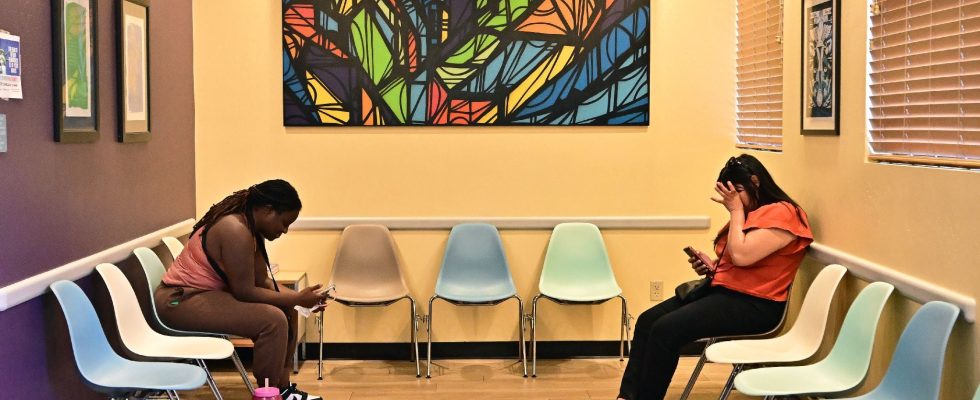This is a new blow for the Americans. This Wednesday, May 1, an extremely restrictive law on abortion came into force in Florida, now prohibiting any voluntary termination of pregnancy after six weeks, compared to fifteen weeks previously. This southeastern American state, in the hands of conservatives, previously served as a refuge for women in the region, where bans or restrictions have increased over the past two years.
“We’re hopeful that not only will Florida’s abortion numbers drop profoundly, but it will also have national implications,” said Andrew Shirvell, founder and executive director of Florida Voice for the Unborn, an anti-abortion lobby that supported the measure. . Republican Governor Ron DeSantis explained that he did not want Florida to remain a “tourist destination linked to abortion”.
This state, unlike much of the South, has had many abortion clinics for a long time: more than 50, spread throughout the country. Last year, Florida clinics performed about 86,000 elective terminations of pregnancies – 9,000 of which involved patients from other states – behind those in California, New York and Illinois, according to the estimates from the Guttmacher Institute. With this new legislation, American women who wish to have an abortion will have to travel many kilometers to find other clinics – more than 1,000 for Miami residents – even though the current wait time for an appointment is of a week or more, reminds the New York Times. “More people will have to travel greater distances if they have the financial resources to do so, and many people will be forced to stay pregnant,” said Stephanie Loraine Piñeiro, executive director of the Florida Access Network, which helps Florida women to pay for their abortions and their travel to clinics.
| Percentage of women in the South living less than 160 km from a clinic offering abortions after 6 weeks | Percentage of women in the South living less than 480 km from a clinic offering abortions after 6 weeks | |
|---|---|---|
| In August 2021 | 93% | less than 1% |
| In March 2024 | 38% | 35% |
| Since the law came into force in Florida | 21% | 57% |
A hot topic
The voluntary termination of pregnancy has almost always been a politically hot topic in the United States, but even more so in the current political context. In June 2022, the American Supreme Court, to which Donald Trump had given a very conservative composition, overturned the Roe v. Wade which guaranteed the protection of the right to abortion at the federal level, returning responsibility to the states. Questioned by the Time to find out if he would veto such a law in the event of re-election, the 77-year-old tycoon, targeted by numerous criminal proceedings, kicked in. “I do not have to veto because now everything has come back to the States,” he notably underlined during an interview published Tuesday April 30.
For his part, Joe Biden assured on April 23 that “voters [allaient] hold Trump accountable”, after a visit to Florida where the Republican candidate had obtained the majority of votes in the last two presidential elections. This May 1, Vice-President Kamala Harris is also expected in the southeastern state of the United States, in order to “discuss the harm done by abortion bans at the state level, and hammer home the fact that ‘it was Trump who did that’,” the president’s campaign team said American and his running mate According to polls, the majority of Americans are in favor of abortion.
